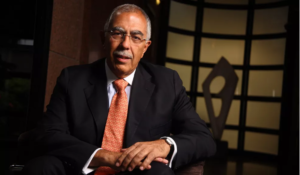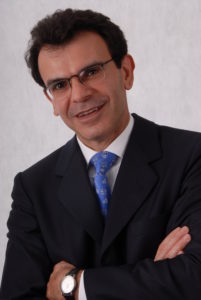Necessary Safeguards Or Excessive Supervision? Experts Debate The Role Of The Fiscal Council
The debate on the right to install a fiscal council on companies, guaranteed by Brazilian Corporate Law, is picking up in Brazil as more listed companies adopt an auditing committee in their organizational structures. The issues put experts on opposite sides, as some note the functions of both bodies are redundant while others support the fiscal council’s role as a controller stance.
The fiscal council is an organizational structure established by Brazilian law in 1940, but its origins go back to the 19th Century. The Brazilian Corporate Law established that shareholders should host an assembly to choose the members who will oversee the management and check the fulfillment of their legal and statutory duties.
The audit committee, however, is supposed to help the board of directors. Companies started to adopt it after the IPO boom in 2006-2008, catering to the demands of foreign investors willing to fulfill governance rules set by the US Sarbanes-Oxley Act (SOX). But they became popular after 2018 when the B3 stock exchange ruled that companies listed in the high-governance segment Novo Mercado must have an auditing committee with at least three members, one of them being an independent director.
Data obtained by Panorama Amec show that the auditing committee is becoming more popular in Brazilian companies. As a result of B3’s demand, a recent study by ACI Institute Brasil reveals that 75% of companies have an audit committee, while only 61% have a fiscal council. Only 18% of companies keep both. (Read the complete study in a report in this issue.)

The data reflect the opinion of some experts, such as independent director José Guimarães Monforte, that, in practice, the fiscal council and the audit committee have similar roles, and keeping both leads to extra work and consequent financial burden for companies.
“The fiscal council’s to-do list is similar to the audit committee’s. So as long as there is a statutory audit committee, with independent members, under SOX’s rules, I don’t see the point in keeping the fiscal council,” he says.
Besides, Mr. Monforte believes that councils should always act on behalf of companies’ best interests, suggesting that the members of a fiscal council do not necessarily represent shareholders’ interests.
For Amec’s CEO, Fábio Coelho, in Brazil, unlike the USA, most companies have a concentrated capital structure, and shareholders are not often represented on boards. Thus, he believes it is necessary to have independent overseeing mechanisms to keep the balance between shareholders.
“I find it hard to see the fiscal council and audit committee as interchangeable as they exist in Brazil today. As the audit committee is not statutory in Brazil nowadays, it is subordinated to the board of directors. Thus, it does not have the autonomy to oversee it,” says Fabio, adding that the existence of more independent fiscal councils, with responsibilities set by the bylaws, allows them to reduce conflict.

Reginaldo Alexandre, an independent director and former CEO of fund managers association Apimec, says that the fiscal council is criticized for making the management uncomfortable. “As an independent body, it bothers controlling shareholders. It is a tool for minority shareholders to oversee the management. Thus, it is often a source of discomfort”.
Overseeing role
As a representative of shareholders’ rights, fiscal counselors should have a broad role. That includes an independent look over financial reports and analyzing the management in a level of detail that won’t even come to shareholders’ attention, says Ricardo Magalhães, manager at Argúcia asset management. However, he notices that its governance stance is commonly used to investigate wrongdoings.
This situation raises questions like the ones made by the director, fiscal counselor, and audit committee coordinator Lúcia Casasanta, regarding the effectiveness of the body. “It is very complicated to oversee the management effectively. The fiscal council is hardly more effective than expert auditing,” she says.

This perception comes from the fact that the fiscal council often counts on poorly trained members, says Ms. Casasanta: “I see many professionals who have worked at the company before taking the nomination as a reward for their services. That reduces the nominee’s independence, harming the fiscal council’s work.”
For this reason, Ms. Casasanta is against permanent fiscal councils. However, she reckons that the council is helpful in particular situations, such as conflicts of interest, when the shareholders cannot agree.
“I’ve seen many fiscal councils working well during the privatization of SOEs in the late 90s. For instance, during (telecommunications holding) Telebras’ privatization, the fiscal council acted decisively to support best governance practices,” she recalls.
Best choices
One of the roadblocks to assembling fiscal councils with more qualified members lies in the deficiencies of the remote voting card, a format mainly used to allow for the participation of foreign investors in assemblies.
“As fiscal council nominees are not included in the remote voting card, investors and companies don’t usually make an effort to suggest good names for the election in assemblies,” says Mr. Coelho.
He notes that foreign investors should also be able to nominate professionals besides deciding on establishing a fiscal council. “We understand that, if it happens, foreign investors and, consequently, locals will think of the composition of the fiscal council in advance. And the fact that proxy voting agencies would evaluate such names would also increase the search for good applicants,” says Mr. Coelho.
Despite the challenges, Mr. Alexandre believes fiscal councils have evolved over the past few years, and there are many positive examples of active councils nowadays. “Activist funds are responsible for stronger diligence, and this movement is incentivizing the search for more qualified people for the jobs.”
Oil maker Petrobras, in which Mr. Alexandre himself worked as a fiscal counselor between 2013 and 2019, is one such example. Before that, the SOE did not have a truly independent fiscal council and board of directors. After that, shareholders started a movement to elect independent directors at Petrobras with the support of AMEC and other associations.
“Back then, AMEC supported the election of more independent boards for Petrobras, which was essential for improving the company’s governance,” he notes.

